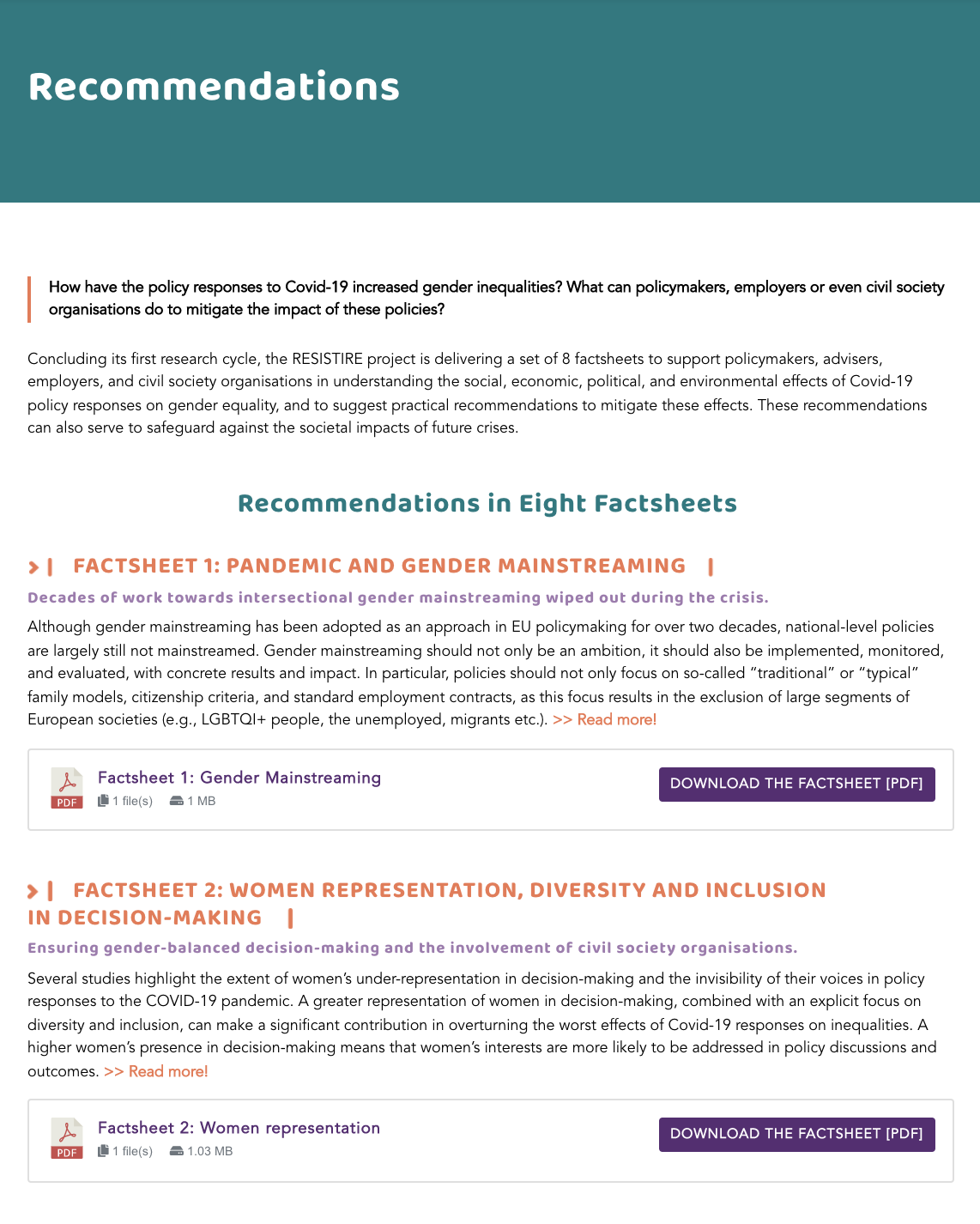Concluding its first research cycle, the RESISTIRE project is delivering a set of 8 factsheets to support policymakers, advisers, employers, and civil society organisations in understanding the social, economic, political, and environmental effects of Covid-19 policy responses on gender equality, and to suggest practical recommendations to mitigate these effects. These recommendations can also serve to safeguard against the societal impacts of future crises.
Translating data into concrete recommendations
The aim of RESISTIRÉ is to understand the social, economic, political, and environmental impacts of the COVID-19 outbreak and its policy responses on existing inequalities in 31 countries (EU-27 plus Iceland, UK, Serbia and Turkey) and to work towards individual and societal resilience.
This is achieved by mapping and collecting data, and by analysing and translating these insights into solutions to be deployed by policymakers, stakeholders and actors in the field in different policy domains.
Based on the results of the project’s first research phase and insights co-created during the Open Studios, this set of operational recommendations, designed as factsheets, concludes the project’s first cycle. They are addressed at policymakers at the European, national and local levels; advisers; employers; and civil society organisations.
How topics were selected
Factsheets focus on eight topics: gender mainstreaming, gender-balanced decision-making, gender equality and diversity plans for hospitals, inclusive green spaces, care and work-life balance, gender-based violence (at European and local levels) and telework.
Three main domains were initially identified after an analysis of the results of RESISTIRÉ research phase: gender mainstreaming, gender-balanced decision-making, and gender-based violence.
Three additional topics that grew out of the co-created ideas for action coming out of each Open Studio were then added: inclusive green spaces, inequalities among healthcare workers, and care.
To assess and refine the selection of Factsheet topics further, a workshop was organised, bringing together experts with specific knowledge on the topics covered. This resulted in splitting the care topic into care work and telework, and the gender-based violence topic into GBV at the European level and national/local level.
Each factsheet provides a brief overview of how COVID-19 has made visible or reinforced existing inequalities in a specific domain, shows personal stories of people affected by them, gives examples of inspiring policies to mitigate these inequalities, and lists several policy recommendations that would address these inequalities.






